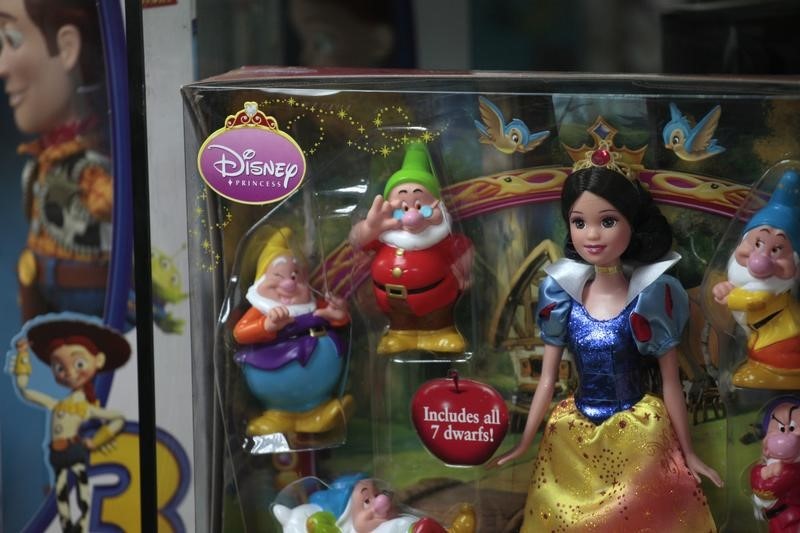This post was originally published on this site
https://i-invdn-com.investing.com/trkd-images/LYNXMPEIB70SN_L.jpg
(Reuters) – The ad-supported version of the Disney+ service launched Thursday, attracting major advertisers from different sectors, bringing in new revenue as Walt Disney (NYSE:DIS) Co strives to push its streaming business into profitability.
Disney Advertising President Rita Ferro (NYSE:FOE) said more than 100 brands, from Mattel Inc (NASDAQ:MAT) to Marriott Hotels & Resorts, are participating in the launch, which Disney has been promoting to marketers and ad buyers since its May.
The company is under pressure to turn a profit on its streaming business, which posted a $1.5 billon loss in the company’s most recent quarter. Investor unhappiness about deepening losses hammered the company’s stock and helped set the stage for the ouster last month of Chief Executive Bob Chapek, and return of longtime Disney leader, Bob Iger.
Advertising introduces a second source of revenue for Disney+, to supplement subscription fees. The company’s other streaming services, Hulu and ESPN+, already have commercials.
A $3-a-month price increase also took effect Dec. 8, bringing the price for the ad-free version of Disney+ to $10.99. Disney+ with ads costs $7.99. Researcher Kantar projects that one out of four Disney+ subscribers could switch to the less-expensive version of the service with advertising.
Chief Financial Officer Christine McCarthy told investors the company does not expect the advertising-supported tier to have a “meaningful impact” until later in its 2023 fiscal year.
As subscriber growth slows in North America, Netflix (NASDAQ:NFLX) similarly introduced commercials to bolster revenue and support its estimated $17 billion annual content spend. Other streaming services, such as HBO Max, Paramount+ and Peacock, also offer ad-supported versions of their streaming services, emulating the business model that has long supported the television business.
Ferro told Reuters that Disney+ will carry four minutes of advertising time per hour, in 15 and 30 second spots, and limit the number of times the same ad will appear over the course of a day or week.
“A brand like Starbucks (NASDAQ:SBUX) will have no more than one commercial an hour, no more than two a day,” she said. “We’ve asked advertisers for multiple versions of creative. Even if they air two a day, you won’t see the same ad.”
Disney plans to introduce features that will allow advertisers to target consumers by region, gender and age.

